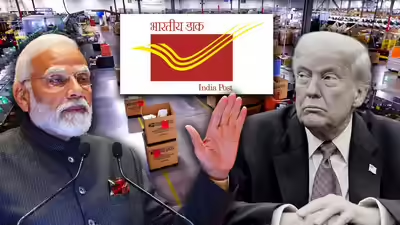New Delhi: India Post has suspended all categories of postal consignments to the United States effective August 25, following the termination of Washington’s long-standing de minimis exemption on low-value imports. The move covers letters, documents and gift items up to ₹8,700 ($100), and reflects the operational uncertainty faced by postal operators under the new U.S. tariff regime.
The de minimis rule, first introduced in 1938 and raised to $800 in 2016, allowed duty-free entry of small parcels into the U.S. In FY 2024 alone, over 1.36 billion packages entered the U.S. under this exemption, representing trade worth an estimated $64.6 billion. Of these, nearly 73% originated from China, with significant volumes from India, the EU and Southeast Asia. President Trump’s Executive Order No. 14324 (July 30, 2025) rescinded this framework, requiring all imports irrespective of value to be subjected to tariffs or flat-rate duties between $80 and $200, depending on origin. With no clear protocol for customs collection or designation of authorized remitters, air carriers and postal networks began refusing consignments. India’s suspension aligns with the stance of more than 25 countries, including Germany, France, the U.K., Japan, Australia, South Korea and Singapore, which have either restricted or halted U.S. mail services. German operator Deutsche Post, for instance, stopped business shipments while allowing only limited private parcels under $100.
The impact is twofold: households, students, and SMEs in India reliant on cost-efficient postal channels face immediate disruption, while U.S. consumers and e-commerce platforms brace for cost escalations. Analysts estimate an additional $11–13 billion in annual expenses for U.S. businesses and shoppers. Already, e-commerce stocks such as Etsy and eBay saw declines of 14% and 6% respectively following the announcement. India Post has assured refunds for undelivered items and stated that services may resume once U.S. Customs and Border Protection provides operational clarity. Until then, private couriers remain the only channel, albeit at significantly higher costs. The suspension underscores a broader global reality: abrupt trade policy shifts, without calibrated mechanisms, risk destabilising international logistics and imposing costs across multiple economies

